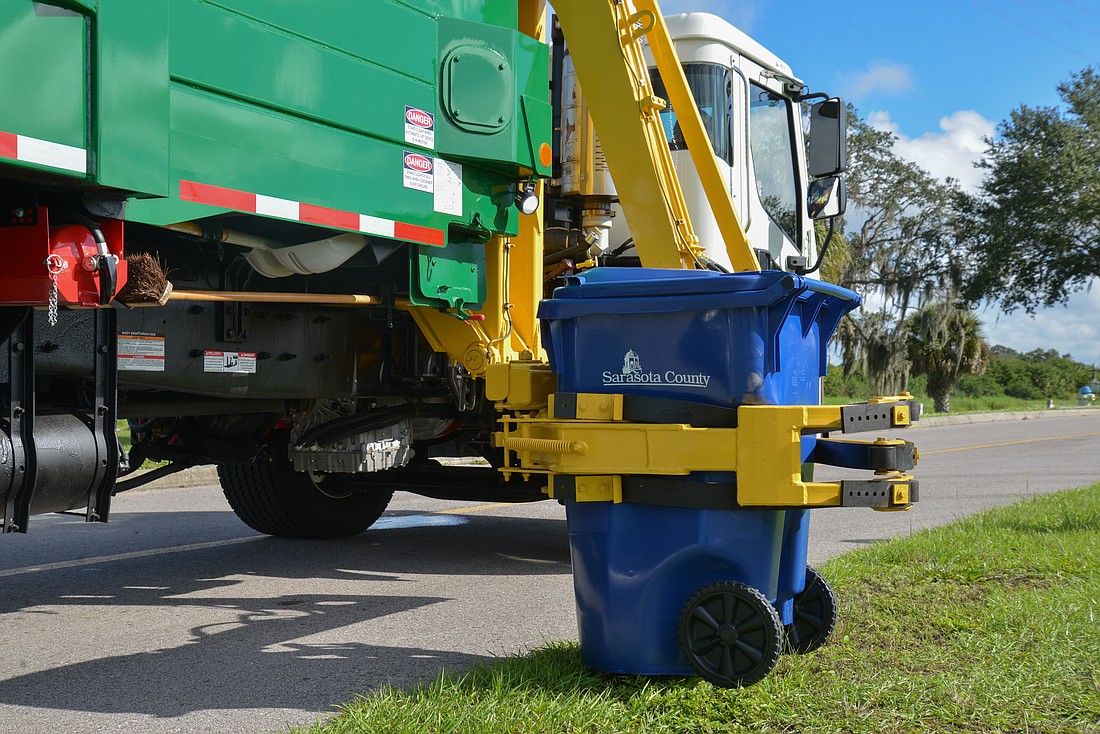- May 27, 2025
-
-
Loading

Loading

Finalizing a process that began four years ago, the Sarasota County Commission voted to part ways with solid waste hauler Waste Management and replace it with two companies.
Dividing the county into two sections, commissioners approved a contract with Waste Pro of Florida for north county unincorporated customers and FCC Environmental Services in the south.
With a primary emphasis on customer service with an eye toward technology, automation and mitigating increasing prices, commissioners accepted the recommendations of Director of Solid Waste Brian Usher, albeit not unanimously.
Although all five agreed on Waste Pro, Commissioner Neil Rainford was the lone supporter of retaining Waste Management in the south.
“Of utmost importance to us throughout the solicitation process and in the final agreements was a focus on customer service, and we achieved that,” Usher said. “We know that there's a much better overall customer experience if they're able to pick up the phone and talk to someone local. We included that in our agreements.”
Usher said that while the market is seeing rate increases of between 40% and 150%, the final rates countywide rose by an average of 24% under the new contracts.
For that, customers will receive direct contractor contact via the county’s 311 system, new rollout bins, real time service oversight by the county and new fleets of automated collection trucks for both garbage and recycling. Customers that generate more volume than the bins can hold — about 10 cubic yards — for the once-weekly collections can individually contract with the hauler for an additional fee.
The playing field with Waste Management was leveled, Usher said, because all bids required including new trucks.
“In having two service providers in two districts they significantly reduced their overall price while bringing additional collection resources to the table, which then provided the better value to both residential and commercial customers,” Usher said. “We worked with the firms to lower the number of household counts per route, which will provide a more reliable service as well as provide capacity and expansion ability of our agreements for future growth of the community.”
An invitation to negotiate (ITN) was advertised in August 2023 and closed on Nov. 2, to which there were five respondents. An evaluation committee narrowed the list to three, then selected the top two firms for each district to enter into negotiations, which were led by Usher.
For south county, Rainford favored retaining the current service provider over the Spanish-owned FCC.
“They know what it takes to service the community, and so I will be moving forward a motion to approve Waste Management for the south district,” he said.
That motion failed to draw a second, and before casting his dissenting vote on FCC, he said, “I know that my motion didn't carry forth and it's obviously disappointing. I think we have a local company here competing with a global company that is not based here, and I’m pretty adamant that we should do business here at home instead of sending our funds overseas. That's my last word on that.”
Although domestic, Houston-based Waste Management is also not a local company. FCC operates in Florida markets such as Orange, Polk, Volusia and Hillsborough counties as well as West Palm Beach and Port St. Lucie. Headquartered in Longwood, Waste Pro is the closest to a local company, maintaining more than 265 municipal contracts and franchises.
The new contracts will go into effect March 31, 2025. In the interim, the county and the new haulers will integrate the technology, and the companies will begin acquiring their fleets of vehicles, the latter which Usher told Rainford under questioning that he was confident both will successfully accomplish.
Also necessary will be a public education campaign regarding the changes.
“There are going to be changes with these agreements,” Usher said. “We're talking about changes in service days, changes in service providers, change in how garbage is collected and change in how bulk is collected, which is going to be a significant campaign on our part.”
A multimedia education outreach campaign will begin in the second half of 2024 and will include a combination of print and digital advertising, broadcast and streaming radio, community events, newsletters, community partners, presentations, social media, press releases, media engagements and more to notify the community of the upcoming changes in collection services.
The implementation schedule includes: